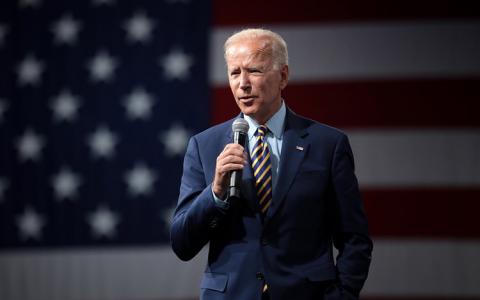
President Biden's top priority thus far has been combating the coronavirus pandemic, but he’s doing so without a Senate-confirmed secretary of Health and Human Services.
The White House has been vexed by messaging on reopening schools, and it's still without an Education secretary to steer the process.
And the administration has punted to the Justice Department on issues like Biden's authority to cancel student loan debt and whether former President Trump should face prosecution for his role in the Jan. 6 riot, a strategy that has been complicated by the lack of a confirmed attorney general.
Biden is more than a month into his presidency, but the Senate has confirmed just six of his Cabinet nominees, leaving critical vacancies as the president seeks to navigate competing crises.
"It’s time to move," said one former Biden aide who is in touch with the White House. "Impeachment is behind us and these are nominees that need to be in place. From a health secretary amidst a pandemic to a host of others that are needed to help our country recover and help our country function."
The Senate has confirmed Biden's secretaries of State, Defense, Treasury, Transportation, Veterans Affairs and Homeland Security.
Biden lags his predecessors in the pace of his confirmations for the 15-member Cabinet.
At the 30-day mark of their presidencies, Barack Obama had 14 confirmed Cabinet officials, George W. Bush had 11 and Donald Trump had eight.
Xavier Becerra, Biden's pick for Health and Human Services secretary, is set to appear before the Senate Health Committee on Tuesday. Merrick Garland, Biden's nominee for attorney general, will have his hearing at the end of the month.
Other nominees, such as Interior Secretary-designate Deb Halaand, could face an even longer path to confirmation as Republicans dig in on their opposition.
"Timely confirmation of the President's deeply qualified and crisis-tested nominees is more critical than ever to defeating the pandemic, putting the American people back to work, ensuring families have food on the table, and re-opening our schools," Andrew Bates, a spokesperson for Biden's transition team, said in a statement. "We continue to work with both parties in good faith towards that end."
The absences have been acutely felt at a time when Biden is seeking to move forward on his policy agenda.
In addition to managing the pandemic, Biden is without a leader at the Department of Health and Human Services at a time as he follows through on a pledge to open a special enrollment period for the Affordable Care Act.
On student loans, White House press secretary Jen Psaki last week told reporters Biden was awaiting the findings of a legal review of his authority to cancel debt, but she acknowledged such a review was delayed because the president's team was not in place at the Justice Department.
Miguel Cardona, Biden's pick for Education secretary, had his confirmation hearing in the Senate but has yet to receive a full vote on his nomination. The role has become especially significant as the administration faces questions almost daily about how it will help schools return to in-person learning during the pandemic.
Biden is also without a confirmed Commerce secretary or Small Business Administration chief as he pushes a $1.9 trillion relief package that would provide aid for small businesses. Furthermore, he does not have a confirmed Energy secretary at a time when Texas's power issues are front-and-center.
The president’s difficulties getting his top officials in place comes as somewhat of a surprise given that Democrats hold the majority in the Senate thanks to victories in two Georgia Senate runoffs in early January.
The wins gave Democrats 50 seats, which, paired with the tie-breaking vote of Vice President Harris, allows them to push through any Biden nominee as long as the party is unanimous in its support.
Despite that, the confirmation process has run into obstacles.
The upper chamber was recently sidetracked by a one-week impeachment trial for Trump. Before that, Democrats were hampered by the lack of an organizing resolution to govern the 50-50 split between parties in the Senate, which delayed transfer of committee leadership and ability to set hearings for some nominees.
The result has been a government lacking several Senate-confirmed leaders after four years in which Trump relied heavily on acting officials and left numerous posts vacant.
"The experience of the past three administrations suggests that despite the relative speed and efficiency that the Biden transition demonstrated in identifying nominees, there are hurdles that will likely delay the confirmation of their carefully picked candidates," Kathryn Dunn Tenpas, a senior fellow at the Miller Center at the University of Virginia who has tracked Cabinet appointments across administrations, wrote earlier this month.
"Such a delay amidst a pandemic, economic volatility and historically high levels of racial tension is a most unfortunate setback."
This article originally appeared on The Hill.



